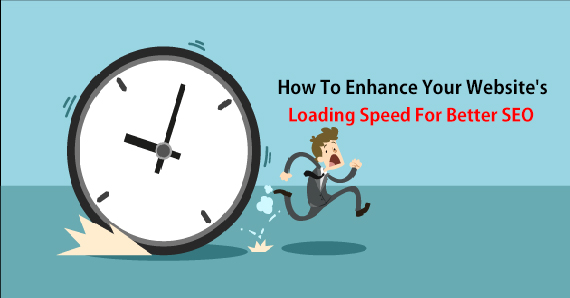How To Enhance Your Websites Loading Speed For Better SEO

According to Webpulse Solution Pvt Ltd, the top SEO Company, beyond user experience, loading speed also directly impacts search engine rankings, making it a crucial element of search engine optimization.
In today's digital landscape, where instant access to information is the norm, a website's loading speed has become a critical factor in determining its success. Users have grown increasingly impatient, expecting websites to load within a matter of seconds. According to Webpulse Solution Pvt Ltd, the top SEO Company, beyond user experience, loading speed also directly impacts search engine rankings, making it a crucial element of search engine optimization. If your website is sluggish, not only will it frustrate visitors, but it will also hinder your chances of ranking well in search results.
-
The Importance of Website Loading Speed
Website loading speed plays a crucial role in user experience and SEO. Studies have shown that users tend to abandon websites that take more than a few seconds to load, resulting in higher bounce rates. Search engines like Google also consider website speed as a ranking factor, as they prioritize delivering the best user experience. A slow-loading website can harm your search engine rankings and make it difficult for your website to rank well in search results. Therefore, optimizing your website's loading speed is essential for both user satisfaction and SEO success.
-
Conduct a Website Speed Audit
Before you can improve your website's loading speed, it's essential to identify areas that need optimization. You can use various tools like Google PageSpeed Insights or GTmetrix to analyze your website's speed performance. These tools provide insights into factors affecting your website's loading speed, such as image sizes, server response time, JavaScript and CSS files, and caching. By conducting a speed audit with the help of the best SEO Company in Delhi, you'll have a better understanding of which areas need improvement.
-
Optimize Image Sizes
Images are often the largest elements on a webpage, and if they are not optimized, they can significantly slow down your website. To optimize image sizes, you can compress them without compromising quality using tools like Adobe Photoshop, TinyPNG, or Squoosh. Additionally, consider using the appropriate image file format, such as JPEG for photographs and PNG for graphics. Resizing images to match their display dimensions on the website is also crucial in the opinion of the most trusted SEO Company in India. By optimizing images, you can reduce the file size and improve your website's loading speed.
-
Minimize HTTP Requests
Each element on your webpage, such as CSS files, JavaScript files, and images, requires an HTTP request to load. The more requests your website needs to make, the longer it takes to load. To minimize HTTP requests, you can combine multiple CSS and JavaScript files into a single file, reduce the number of images used, and implement lazy loading for images below the fold. Additionally, consider utilizing browser caching to store static files, reducing the need for repeated requests.
-
Optimize Server Response Time
Server response time refers to the time it takes for your web server to respond to a request from a user's browser. A slow server response time can greatly impact your website's loading speed. To optimize server response time, ensure you have a reliable hosting provider with adequate server resources. Additionally, reduce the size of your web pages, optimize database queries, and utilize content delivery networks (CDNs) to distribute your website's files across multiple servers.
Websites that load quickly not only provide a better experience for site visitors but also rank higher in the results returned by search engines. Your website's SEO performance and user satisfaction will improve when you've had a speed audit performed, optimized image sizes implemented, the number of HTTP requests reduced, and the server response time optimized. Optimizing your website's loading speed is not just a nice-to-have feature; in today's fast-paced digital world, every second counts. Bounce rates, visitor dissatisfaction, and search engine rankings can all suffer when a website takes too long to load. Focusing on increasing your site's loading speed is a surefire way to increase your chances of success in today's cutthroat digital market. Every effort taken to reduce load times—from performing a speed audit to optimizing images, reducing HTTP requests, and fine-tuning server response time—improves SEO performance and customer pleasure. Improve your site's search engine rankings and user engagement by making speed optimization a top priority.



























